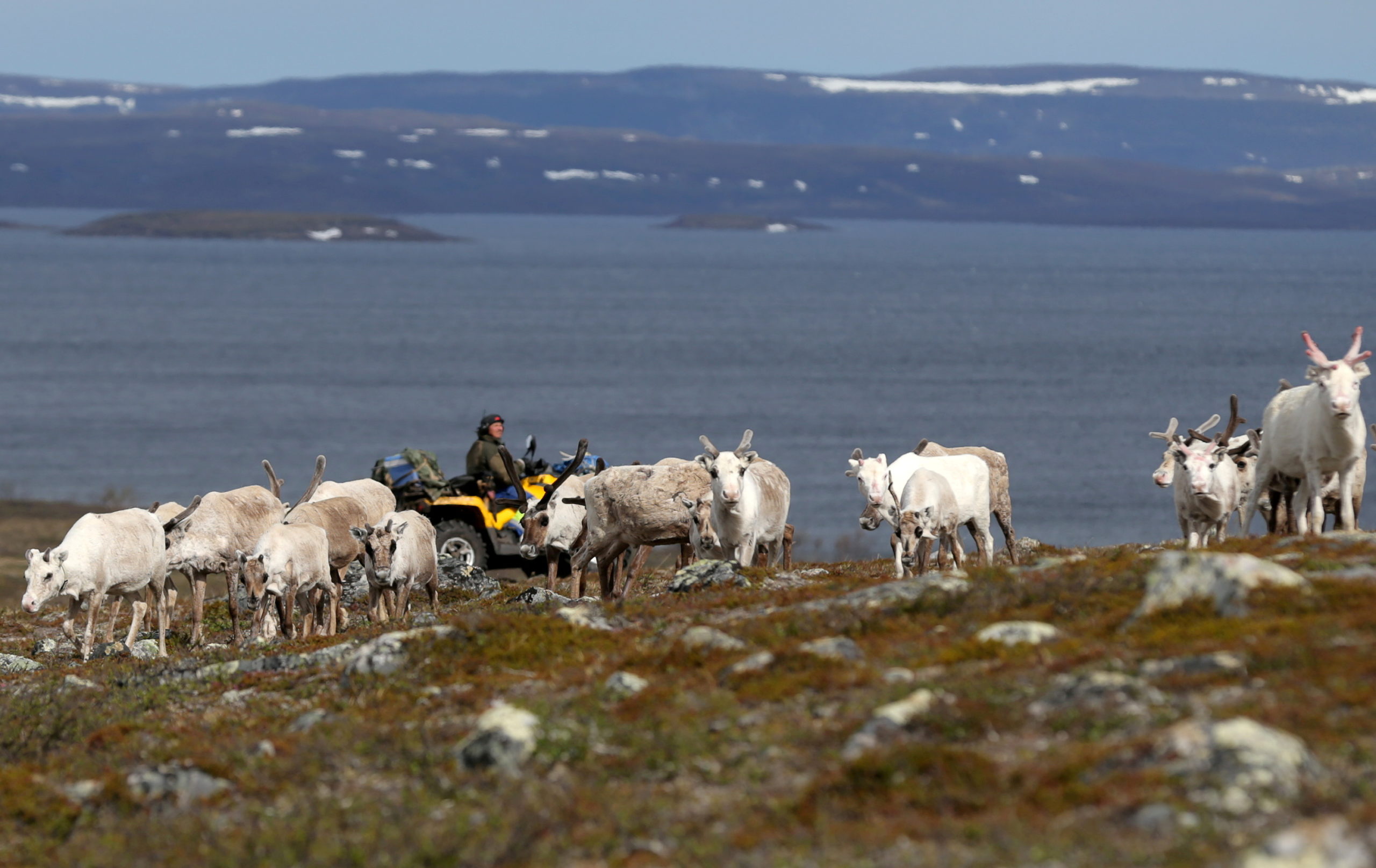Two Norway wind farms lose their licenses in a landmark Indigenous rights ruling
Norway's top court ruled that construction of wind turbines in the Fosen region interfered with Sami herders' cultural rights under international conventions.

OSLO — Norway’s supreme court stripped two wind farms of their operating licenses on Monday in a case that could boost the legal rights of the country’s Indigenous Sami people.
Reindeer herders in Norway argue the sight and sound of wind turbines frighten animals grazing nearby and thus jeopardize age-old traditions, and that land should not be expropriated for such projects.
The supreme court case centered on whether the construction of turbines at Storheia and Roan in the Fosen region of central Norway, part of a $1.3 billion development that is Europe’s largest onshore wind farm, had interfered with Sami herders’ cultural rights under international conventions.
[Sámi mount new challenge to legality of Norway’s largest wind farm]
“A grand chamber of the supreme court unanimously found an interference with this right, and ruled the wind power license and the expropriation decision invalid,” the court said in its ruling.
It did not say what should happen next to the facilities, but a lawyer representing the herders said the verdict means the 151 wind turbines should be dismantled.
“Our starting point is that these two wind farms are illegal and have to be taken down,” Knut Helge Hurum of the Fend law firm told Reuters.
“We are awaiting contact from the owners of the wind farm to see what they have to say about this.”
Fosen Vind developed both sites and remains the main owner of Storheia. Fosen Vind is owned by Statkraft, TroenderEnergi and Nordic Wind Power DA, a consortium of Energy Infrastructure Partners and Swiss power firm BKW.
The court’s decision came as a surprise, Fosen Vind said in a statement, adding it would await a response from the energy ministry before making further comment.
The ministry said it was studying the verdict.
“We’ll have to come back to how this case should be handled,” an energy ministry spokesperson said.
The verdict could also affect other projects, Hurum of the Fend law firm said.
“It will have quite an impact on later developments inside the Sami reindeer area. It’s certainly relevant for other wind farms, but also for mines and other big development projects, big roads for example,” he said.
The Roan wind farm is now a separate company, Roan Vind, owned by TroenderEnergi, Stadtwerke Muenchen and Nordic Wind Power.